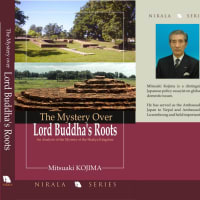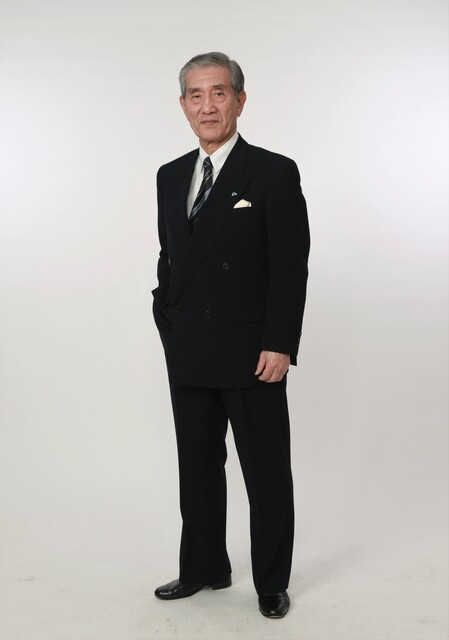Ukraine in between two camps with different values, Russia and NATO
Russian President V. Putin declared the annexation of 4 Provinces in Ukraine, namely Donetsk, Luhansk (the full areas), and Kherson and Zaporizhzhia (in full or the areas held by its troops), after signing the Annexation agreements with four pro-Russian Provincial leaders on 30th September, 2022, and the agreements were ratified by the Russian Federal Assembly in early October.
Three days earlier, the referendums on joining Russia were carried out in the four provinces and approved with over 90% majority except for Kherson which marked 80% level approval.
President V. Zelenskyy of Ukraine quickly denounced the referendums carried out in four Provinces as invalid and illegal, and also the Russian move to annex them based on the results such referendums.
In response, Ukraine formally requested an accelerated accession to NATO on 30th September,2022.
The U.N. General Assembly adopted Resolution condemning Russian Annexation of four eastern Ukraine regions under the title of “Territorial integrity of Ukraine: defending the principles of the Charter of the United Nations” on 12th October, with 143 countries in favor, 5 countries against (Belarus, North Korea, Nicaragua, Russian Federation, Syria). 35 countries abstained.
Ukrainian President Zelenskyy repeatedly expressed his pledge to retake all of the Ukrainian territory held by Russia, while expressing his intention not to negotiate with Russian President Putin in person.
This indicates that the war is likely to drag on into the winter.
- A need to cope with another War, Covid19 and worldwide Inflation
Against the backdrop of the regional war in Ukraine, the World has been fighting against three-year long Covid19 and a high inflation as many industrialized countries now seek an exit from the inflated economy temporally sustained by the massive government spendings and lending. On top of it, the United States and other NATO countries initiated wide-ranging sanctions against Russia, which are adversely affecting the World economy, resulting in acute energy shortage and rapid price-hike and other restrictions on business transactions with Russia. As the war in Ukraine is dragging into the winter, many European people, not to mention Ukrainians themselves will suffer from coldness caused by the energy shortage, in particular natural gas and oil while fighting against Covid19 and flu. It is feared tens of thousands people might die during the freezing winter. The death toll might be more than the total death toll in Ukraine. Unfortunately, the corona virus pandemic seems to recure again in many parts of the World.
While the Russian invasion in Ukraine should be strongly condemned and Russia should bear the consequences, it is indispensable to avoid such fatal hardship in Europe and elsewhere in the World because of severe shortage of energy and food. The NATO initiated sanctions against Russia does more harm to Europe and the World now. Even during the Cold War era, NATO initiated to set up the Coordinating Committee for Multilateral Export Controls(COCOM )in 1949 until 1994 restricting trade with the Soviet Union only on weapons and other sensitive goods. Japan and Australia joined the regime. It was replaced in July,1996, by the Wassenaar Arrangement on Export Controls for Conventional Arms and Dual-Use Goods and Technologies with 42 participating states including many former Warsaw Pact countries. It is designed to promote transparency and greater responsibility in transferring conventional arms and dual-use goods and technologies to non-member countries.
Now the wide-ranging sanctions including the restriction on SWIFT, which facilitates quick financial transactions among financial institutions throughout the World, affects Europe and the entire World as side effects. The Sanctions against Russia should be limited to weapons and sensitive goods. The Wassenaar Agreement should be expanded largely such as the scope of products to be applied ranging from relevant weapons, dual use goods and technologies to IT related goods, communication tools, outer-space goods, rare metals, and related intellectual properties, and so on. Such an expanded Agreement may be also applicable to China and North Korea.
Against the background of the war in Ukraine, the World now needs to cope with the 3-year long Pandemic and steep inflation as a backlash of massive government spendings and lending operations to sustain economic slowdown elsewhere in the World, while supporting Ukraine with weapons and others. People in the World, especially in Europe and Japan, feel an acute shortage of gasoline, natural gas and wheat as well as job opportunities due to 3-year long economic stagnation, and are suffering from a steep price hike in daily necessities with persistent constraints and restrictions on daily activities. The prolonging war in Ukraine has been added to the above global war since February,2022, thus aggravating the economic and social activities in most parts of the World. Already the pandemic alone took over 6.6 million lives in the World, which is far more than the death toll in Ukraine. And if the sanctions including the SWIFT restrictions are maintained into the winter as the war in Ukraine prolongs, it is feared that tens of thousands, or millions lives in Europe may die from freezing cold weather because of electricity shortage.
We should put more emphasis on the global war against Covid19 and severe inflation which affect adversely the daily life in the entire World, while providing Ukraine weapons and other human supports.
- Territorial issue and Peace settlement in Ukraine
There is no justification for the Russian invasion in Ukraine. At the same time, we should give fair evaluation of the historical and geopolitical background of Ukraine and Russia.
(1) Historically, Ukraine used to be one of the core members of the Soviet Union after Russia. After the fall of the Soviet Union, Ukraine belonged to CIS (Commonwealth of Independent States), and kept distance from Russia after 2014 as the democracy movements advanced there and it is leaning toward EU and NATO, especially in the central and western provinces. However, Russian-speaking people and influence remain there, in particular, in the eastern provinces. Russia still has a big stake there although nuclear weapons were taken away.
(2) Geopolitically, Ukraine is situated in between Russia and expanded EU and NATO. NATO is composed of 30 countries now including most of the former Warsaw Pact countries. Now Sweden and Finland, which has been keeping neutrality, are in the process of joining NATO. In a sense, it is situated in between two camps with different basic values, namely in between democracy and authoritarian regime. The Warsaw Pact Organization was disbanded after the collapse of the Soviet Union and the democratization of most of East European countries. While the East- West Cold War was over, NATO not only continues to exist but also expands eastward from 16 member countries to 30 countries assimilating most of the former Warsaw Pact countries. That has been causing a security concern on the part of Russia, especially in the mind of President Putin backed by nationalist philosophers and nostalgy for the Soviet empire.
As a whole, for Ukraine, it is a matter of security and existence, and for Russia, it is a matter of security and rivalry with NATO and EU over basic values and governing system. Geographically, both Ukraine and Russia cannot move from that setting. NATO as well as Ukraine and Russia should respect each other such a geographical and historical setting.
(3) The Minsk Truce Agreement of 2014 between Ukraine and Russia expired on 21st January,2022, failing to solve an autonomous issue of two self-proclaimed rebel republics of Donetsk and Luhansk which had been denying the Kyiv’s control. And Russia recognized the independence of the two self-proclaimed republics of Donetsk and Luhansk. After the Russian invasion in Ukraine in February,2022, and the subsequent war in east and south-east regions in Ukraine, the Kremlin-backed so-called ‘Referendums’ on joining Russia were carried out in four provinces, namely southern Kherson region and part of Zaporizhzhia in addition to adjacent eastern Donetsk and Luhansk in September ,2022. Three days after the approval in the referendums in all four provinces with over 90% approval votes except for below 90% in Kherson, on 30th September,2022, those four provincial leaders signed respective Treaties with Russian President Putin to join Russia. Ukrainian President V. Zelenskyy repeatedly expressed the unacceptance of such referendums and his intention to recover all the Ukrainian territories held by Russia. It is also denied by NATO countries. It is questionable especially in the case of Kherson and Zaporizhzhia whether they have legitimate authority to sign any treaty with Russia, while Donetsk and Luhansk, which maintained a certain degree of independence from central Ukraine since 2014, may have had such power as an Independent Republic.
3.Exert more Wisdom than Weapons for Ukraine
During the eight-year long Truce Agreement, it was designed to settle the autonomy issue of the two eastern provinces. But such efforts failed, and President Zelensky, instead, openly expressed his intention to become a member of NATO.
For Russian, the constant east-bound expansion of NATO has been seen as a threat. President V. Putin expressed his view at a press conference in April,2008, on the occasion of the NATO summit that “any attempt to expand NATO to the Russian borders would be seen as a direct threat”. At that time, NATO had already expanded its membership from 16 to 26 after the Soviet Union, therefore the East-West Cold War, was over. Now it is embracing 30 countries with the U.S. military bases and the THAAD missiles in Romania.
(1) No justification for the Russian aggression in Ukraine
Russian invasion in Ukraine cannot be tolerated and should be condemned.
Every sovereign country has the right to defend itself against any aggression.
In support of such Ukraine’s efforts to defend itself, many NATO member countries including the U.S. and others have been sending weapons after weapons together with other civil support upon request from Ukraine.
Such a support is necessary. But we should exert more wisdom than weapons. Wisdom to stop the armed conflicts and the bloodshed. And wisdom to realize a peaceful settlement in Ukraine. Further military support, in particular, sophisticated longer-range missiles and other weapons from the NATO countries to Ukraine seems to lower a threshold for a war in Europe, or, at the worst, a nuclear war in Europe. Also a wide-ranging sanctions against Russia would adversely affect the World economy sooner or later like a boomerang.
(2) Needed recognition of the Co-Existence in the face of the differences in basic values and governing systems in the World
At a time of apparent differences in basic values and governing systems in the World seen in such cases as the Russian invasion in Ukraine and the trade issue with China, we need a practical philosophy governing the World now.
There are basically 3 alternatives. Namely, 1) defeat the opponent, completely, if possible, 2) accept the domination by the opponent, or 3) co-existence with different values and governing systems.
The first two alternatives will not be accepted by the other side. The World is divided in these two cases, and a fear of a war lingers. If the World is to be one globe, therefore, Co-Exis tence seems to be the only realistic alternative.
Democracy is based on human equality, acceptance of diverse values and belief, and pluralism. And given the present nation-to-nation relations which are based on the territorial sovereignty with its own basic values and governing systems, Co-Existence is the realistic philosophy governing the present international relations, if a democratic method is to be applied in handling international affairs as well.
And sometime in the future, the World of Co-Prosperity may be realized.
By such a time, and if the differences between countries or groups of countries in basic values and governing systems continue to damage or erode national interests and national security of one country (or group of countries), each country or a group of countries may have to set some regulations on relevant fields such as trade, entry permit, financial transactions and intellectual properties to fill such a gap, while trying to maintain freer exchanges among countries and a globalization movement. In trade, for example, it is indispensable to equalize the level of freeness between some domestic market economy and the internationally recognized free market economy to retain a fair trade and competition. It is a process to realize a free and fair trade between non-free market economies and freer market economies. (2023.1.4.)


















